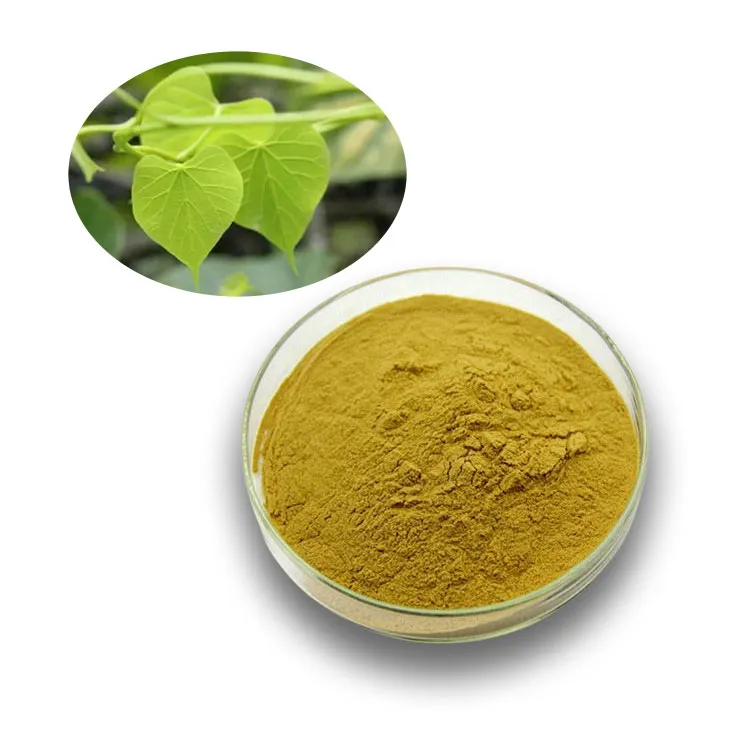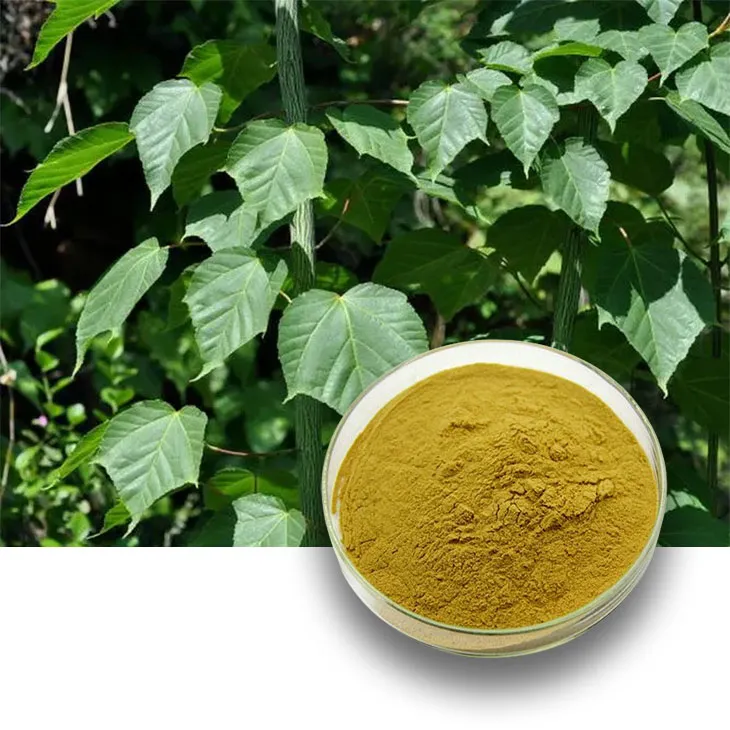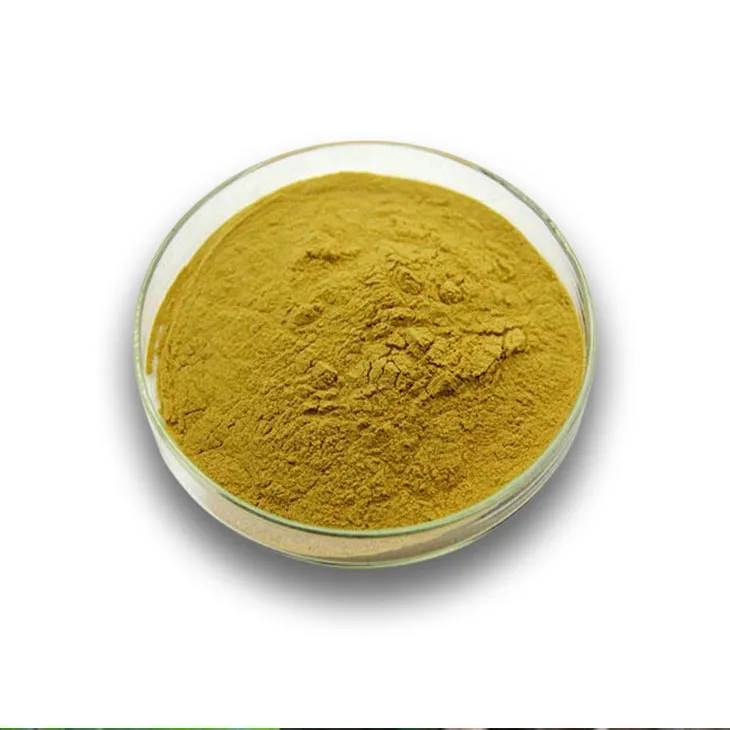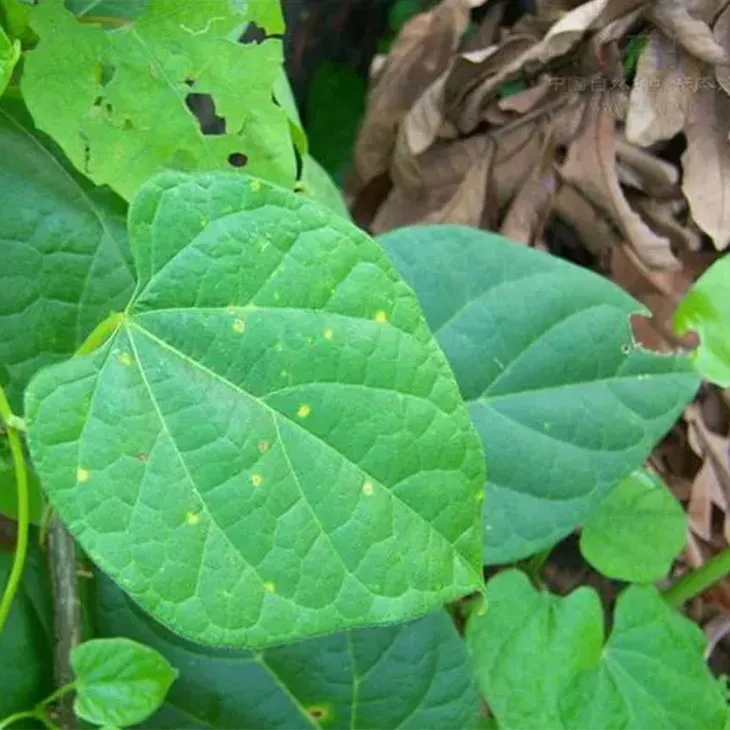- 0086-571-85302990
- sales@greenskybio.com
Seven Trends of Tinospora cordifolia Extracts.
2024-12-21

1. Medical Potential in Anti - Inflammation and Immunity Regulation
Tinospora cordifolia extract has been garnering significant attention in the medical field, especially in relation to anti - inflammation and immunity regulation. Inflammation is a complex biological response that can lead to various diseases when it becomes chronic. The extract contains bioactive compounds that have shown the potential to modulate the body's inflammatory responses. For example, certain alkaloids and flavonoids present in the extract may interact with the body's immune cells, such as macrophages and lymphocytes, to reduce the production of pro - inflammatory cytokines. These cytokines are key mediators in the inflammatory process, and by regulating their levels, the extract can potentially alleviate inflammation - related symptoms.
Immunity regulation is another crucial aspect of the extract's medical potential. A well - balanced immune system is essential for maintaining good health. Tinospora cordifolia extract may enhance the body's immune function by stimulating the production of antibodies and activating immune cells. It can also help in the proper functioning of the immune system's surveillance mechanism, which is responsible for detecting and eliminating foreign invaders, such as viruses and bacteria. This dual role in anti - inflammation and immunity regulation makes the extract a promising candidate for the development of new drugs or as a complementary treatment in various medical conditions.

2. Popularity as a Natural Health Product: Adaptogen and Nutrient
In the realm of natural health products, Tinospora cordifolia extract has emerged as a popular choice, particularly as an adaptogen and a source of nutrients. An adaptogen is a substance that helps the body adapt to stress, whether it is physical, chemical, or biological stress. The extract contains compounds that can modulate the body's stress response systems, such as the hypothalamic - pituitary - adrenal (HPA) axis. By doing so, it can help the body maintain a state of balance, or homeostasis, during times of stress.
As a nutrient - rich extract, it provides a variety of essential elements for the body. It contains vitamins, minerals, and other bioactive compounds that can contribute to overall health and well - being. For instance, it may contain antioxidants that protect the body's cells from oxidative damage caused by free radicals. These free radicals are produced during normal metabolic processes as well as in response to environmental factors such as pollution and radiation. The antioxidant properties of the extract can thus play a role in preventing chronic diseases and promoting healthy aging.

3. Application in the Beauty Field: Skin Repair and Oil Control
The beauty industry has also recognized the value of Tinospora cordifolia extract. One of its significant applications in this field is skin repair. The skin is constantly exposed to various environmental factors that can damage it, such as UV radiation, pollution, and harsh chemicals. The extract contains components that can stimulate skin cell regeneration, which is crucial for repairing damaged skin tissue. It can also enhance the production of collagen, a protein that gives the skin its elasticity and firmness. By promoting collagen synthesis, the extract can help reduce the appearance of wrinkles and fine lines, resulting in a more youthful and healthy - looking skin.
Another important aspect in the beauty field is oil control. Many people struggle with oily skin, which can lead to problems such as acne and enlarged pores. Tinospora cordifolia extract has properties that can regulate sebum production, the oily substance secreted by the sebaceous glands in the skin. By controlling sebum production, it can help keep the skin's oil levels in balance, reducing the likelihood of developing acne and other skin blemishes.

4. Role in Agriculture: Promoting Plant Growth and as a Natural Pesticide
Tinospora cordifolia extract is finding applications in agriculture as well. One of its key roles is in promoting plant growth. The extract contains nutrients and bioactive substances that can enhance plant development. For example, it may provide essential minerals and growth - promoting hormones that can stimulate root growth, increase plant height, and improve the overall vigor of plants. This can be particularly beneficial in areas where soil fertility is low or in the cultivation of plants that are sensitive to nutrient deficiencies.
As a natural pesticide, the extract has shown potential in protecting plants from pests and diseases. It contains compounds that can act as natural insect repellents or deterrents. These compounds can disrupt the feeding and breeding patterns of insects, thereby reducing their impact on plants. Additionally, some components of the extract may have antifungal or antibacterial properties, which can help prevent plant diseases caused by fungi or bacteria. This dual function in promoting plant growth and protecting plants makes the extract an attractive option for sustainable agriculture.

5. Green Extraction and Sustainable Development
Green extraction is becoming an important trend in the production of Tinospora cordifolia extract. Traditional extraction methods often involve the use of large amounts of solvents, some of which may be harmful to the environment. Green extraction techniques, on the other hand, aim to minimize the environmental impact while still obtaining high - quality extracts. These techniques may include supercritical fluid extraction, which uses a supercritical fluid, such as carbon dioxide, as the extraction solvent. Supercritical carbon dioxide has the advantages of being non - toxic, non - flammable, and easily recoverable, making it an environmentally friendly alternative to traditional solvents.
Sustainable development is also a key consideration. This involves ensuring that the harvesting of Tinospora cordifolia is done in a sustainable manner. Over - harvesting can lead to the depletion of the plant population, which can have negative impacts on the ecosystem. Therefore, measures are being taken to promote sustainable harvesting practices, such as setting quotas, promoting cultivation, and protecting the natural habitats of the plant. By integrating green extraction and sustainable development, the production of Tinospora cordifolia extract can be made more environmentally and socially responsible.
6. Global Expansion with Standard Quality Control
Tinospora cordifolia extract is experiencing global expansion. As its potential in various fields becomes more widely recognized, there is an increasing demand for the extract in different parts of the world. However, to ensure its safe and effective use, standard quality control is essential. Quality control measures include the standardization of extraction processes, the identification and quantification of bioactive compounds, and the testing for contaminants. By implementing strict quality control standards, producers can ensure that the extract meets the required quality and safety specifications.
Standard quality control also plays a crucial role in international trade. Different countries may have different regulations regarding the use and import of herbal extracts. By adhering to international quality standards, producers can facilitate the export of Tinospora cordifolia extract and ensure its acceptance in global markets. This, in turn, can contribute to the further expansion of the extract's market and its integration into various industries worldwide.
7. Part of In - depth Interdisciplinary Research
Tinospora cordifolia extract is now part of in - depth interdisciplinary research. Scientists from different fields, such as medicine, pharmacology, botany, and biotechnology, are collaborating to explore its full potential. In medicine, researchers are studying its mechanisms of action in more detail to develop more targeted drugs. Pharmacologists are investigating how to optimize its formulation for better bioavailability and efficacy. Botany researchers are looking into ways to improve the cultivation and conservation of Tinospora cordifolia, while biotechnologists are exploring the possibility of using genetic engineering techniques to enhance the production of bioactive compounds in the plant.
Interdisciplinary research also extends to its applications in other fields. For example, in the beauty industry, collaborations between chemists and biologists are exploring new ways to incorporate the extract into cosmetic formulations for enhanced skin benefits. In agriculture, agronomists and plant biologists are working together to develop more effective ways of using the extract for plant growth promotion and pest control. This interdisciplinary approach is expected to unlock new knowledge and applications for Tinospora cordifolia extract in the future.
FAQ:
What are the main applications of Tinospora cordifolia extracts in medicine?
Tinospora cordifolia extracts have promising prospects in anti - inflammation and immunity regulation in medicine. They can be used to treat various inflammatory conditions and help regulate the body's immune system to maintain a healthy state.
Why is Tinospora cordifolia extract popular as a natural health product?
It is popular as a natural health product because it acts as an adaptogen and nutrient. Adaptogens can help the body adapt to stress, and as a nutrient, it provides certain essential substances for the body, thus promoting overall health.
How does Tinospora cordifolia extract contribute to the beauty field?
In the beauty field, Tinospora cordifolia extract can repair skin by promoting cell regeneration and collagen synthesis. It also has the function of controlling oil production, which is beneficial for maintaining healthy skin.
What role does Tinospora cordifolia extract play in agriculture?
In agriculture, Tinospora cordifolia extract can promote plant growth by providing certain beneficial substances. It can also act as a natural pesticide, protecting plants from pests and diseases without causing too much harm to the environment.
What is the significance of green extraction and sustainable development for Tinospora cordifolia extract?
Green extraction and sustainable development are important for Tinospora cordifolia extract. Green extraction ensures that the extraction process is environmentally friendly, reducing pollution and waste. Sustainable development means that the source of Tinospora cordifolia can be continuously utilized without over - exploitation, which is crucial for the long - term availability and application of this extract.
Related literature
- The Medicinal Properties of Tinospora cordifolia: A Review"
- "Tinospora cordifolia Extract in Cosmetic Applications"
- "Sustainable Extraction of Tinospora cordifolia for Agricultural Use"
- ▶ Hesperidin
- ▶ citrus bioflavonoids
- ▶ plant extract
- ▶ lycopene
- ▶ Diosmin
- ▶ Grape seed extract
- ▶ Sea buckthorn Juice Powder
- ▶ Beetroot powder
- ▶ Hops Extract
- ▶ Artichoke Extract
- ▶ Reishi mushroom extract
- ▶ Astaxanthin
- ▶ Green Tea Extract
- ▶ Curcumin Extract
- ▶ Horse Chestnut Extract
- ▶ Other Problems
- ▶ Boswellia Serrata Extract
- ▶ Resveratrol Extract
- ▶ Marigold Extract
- ▶ Grape Leaf Extract
- ▶ blog3
- ▶ blog4
- ▶ blog5
-
Beetroot Powder
2024-12-21
-
Camu Camu Extract
2024-12-21
-
Coconut Water Powder
2024-12-21
-
Cactus Extract
2024-12-21
-
Feverfew Extract
2024-12-21
-
Chia Seed Powder
2024-12-21
-
Elderberry Extract
2024-12-21
-
Dan Shen Root Extract/Salvia Root Extract
2024-12-21
-
Cat Claw Extract
2024-12-21
-
Europen Bilberry Extract
2024-12-21





















